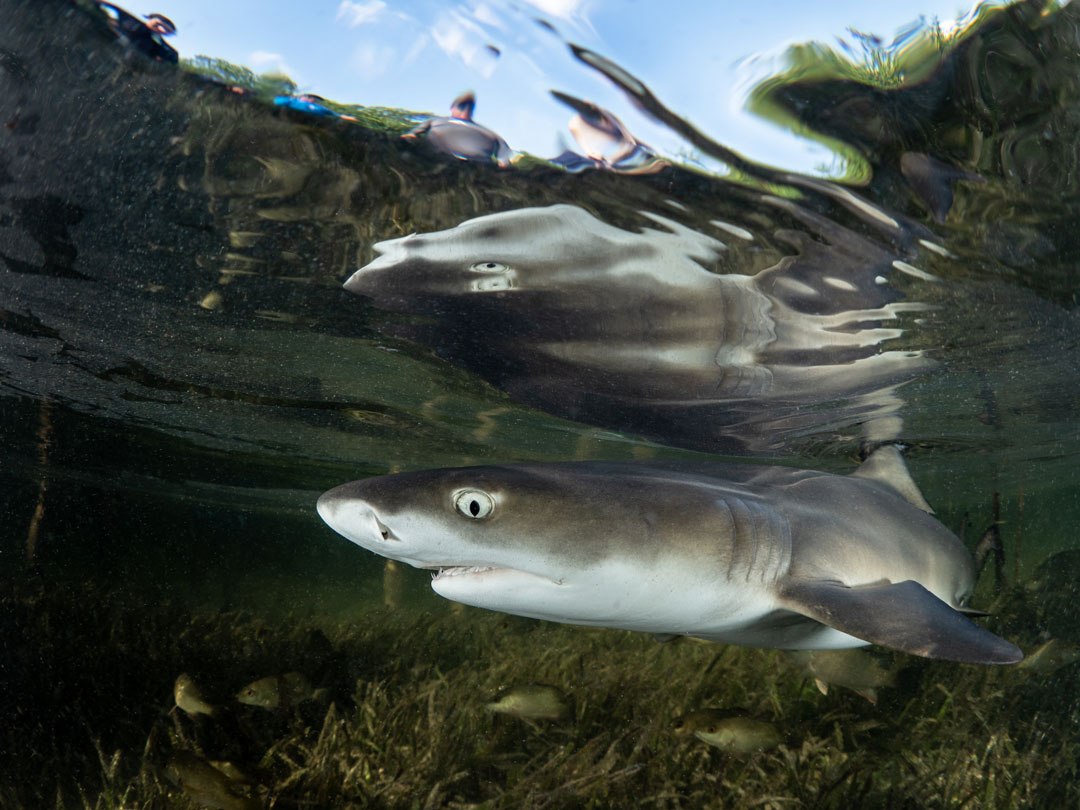Q&A with Andria Beal
How did you become interested in the biology of sharks?
There is nothing better than seeing a shark while diving. These animals have captured my heart, they are top predators that demand respect and rightfully so with how important they are to the ecosystem… and also because they have a lot of sharp teeth. But it’s not just that, biologically these animals rock! Sharks have been on Earth for such a long time, their skeletons are fully made out of cartilage, and they are the longest living vertebrate in their group (check out the Greenland shark if you haven’t heard). If you’ve wondered about the anti-cancer rumours, the white shark genome project just found evidence to support this! From a biology standpoint, these guys are insanely important to study.

Andria stands at the entrance the the Bimini Biological Field Station Foundation - SharkLab. Andria will be conducting her research at the SharkLab while observing traces of heavy metals in the local lemon shark populations.
What is the most important contribution of this project to the assessment and conservation of sharks?
The field of environmental epigenetics shows promise in the creation of molecular tools that can be used to obtain general information, such as age or exposure status, but could also be used to assess population health. This particular project is working towards finding biomarkers of exposure. This task requires an understanding of how epigenetic marks look in general for sharks and we know very little about this. In addition to potentially identifying biomarkers of exposure to trace heavy metals, this project is going to kick open the door (and I mean an intense feel-good kick) to using epigenetics to study sharks for conservation measures.

A juvenile Lemon shark swims by at one of Bimini's mangrove nursery areas, Aya's Spot. Photo by Sophie Hart | © Bimini Biological Field Station Foundation
Once this project is complete, what do you think would be the next step in shark research?
Pushing on to find biomarkers of other stressors, developing new tools to obtain population information, and using epigenetic marks for health assessments. For environmental epigenetics work, the world is an open book of studies to be done.
How will this project impact your future scientific development?
This project is preparing me for all the future studies to be done. Once we start to know a little more about these sharks and their epigenetic marks, we can start to really develop molecular tools to help manage and conserve their populations. A career goal of mine is to start my own research facility and I believe this project is the perfect start to the long line of work that could help develop and kick off this facility.
